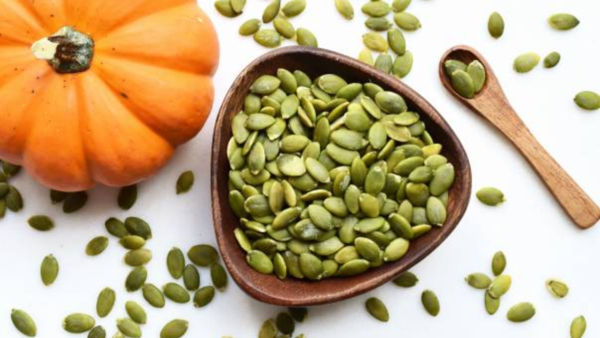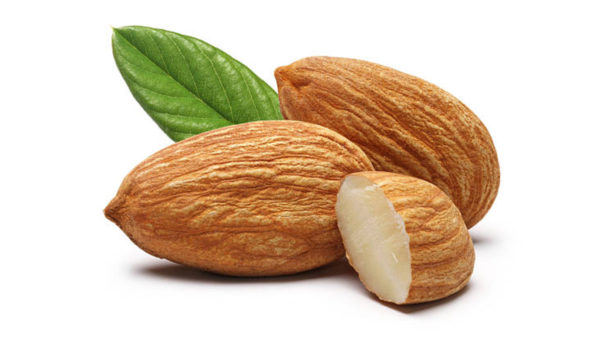Of the several nuts and seeds that are consumed on a daily basis for their potential health benefits, two are considered to be highly nutritious: almonds and pumpkin seeds. These versatile seeds can be a part of your diet in whichever way you want to add them. They add crunch, taste and texture to food. But, have you ever wondered which one of these is more nutritious and healthier for the body? Let’s find out.
When comparing two nutrient-rich foods like pumpkin seeds and almonds, it’s important to understand that both offer unique health benefits and nutritional profiles.
Pumpkin seeds are rich in immunity boosting mineral manganese
Pumpkin seeds are a powerhouse of nutrients. Only 28 grams of pumpkin seeds contains 151 calories, 7 grams of protein, 13 grams of fat and up to 2 grams of fiber. Apart from these, pumpkin seeds also contain essential minerals like magnesium, iron, copper and manganese and also contain antioxidants like vitamin E. They are a good source of omega-6 fatty acids, which are beneficial for heart health when consumed in balance with omega-3 fatty acids.

Here’s the complete nutritional profile of pumpkin seeds
- Calories: 151
- Protein: 7 grams
- Fat: 13 grams (of which 6 grams are omega-6 fatty acids)
- Carbohydrates: 5 grams
- Fiber: 1.7 grams
- Magnesium: 37% of the RDI (Recommended Daily Intake)
- Zinc: 14% of the RDI
- Iron: 23% of the RDI
- Copper: 19% of the RDI
- Manganese: 42% of the RDI
Almonds are rich in anti aging vitamin, vitamin E
Almonds are also packed with nutrients and offer a different set of health benefits. 28 grams of almonds contains 164 calories, 14 grams of fat, 6 grams of protein and more than 3 grams of fiber. Almonds are exceptionally rich in vitamin E. They provide a modest amount of protein and a variety of minerals like magnesium and calcium.
Here’s the complete nutritional profile of almonds
- Calories: 164
- Protein: 6 grams
- Fat: 14 grams (of which 9 grams are monounsaturated fat)
- Carbohydrates: 6 grams
- Fiber: 3.5 grams
- Magnesium: 20% of the RDI
- Vitamin E: 37% of the RDI
- Calcium: 7% of the RDI
- Iron: 6% of the RDI
- Copper: 14% of the RDI
Poll
Do you eat nuts/ seeds regularly?
Pumpkin seeds are said to be good for prostate health
Pumpkin seeds are a potent source of antioxidants, including carotenoids and vitamin E. This is beneficial for preventing chronic diseases like heart disease and certain cancers. For men, pumpkin seeds are particularly beneficial because of their high zinc content, which plays a vital role in maintaining prostate health. Studies have shown that consuming pumpkin seeds may help reduce the risk of benign prostatic hyperplasia (BPH), a condition that causes an enlarged prostate.
Pumpkin seeds contain tryptophan, an amino acid that is converted into serotonin and then into melatonin in the body. This helps regulate sleep patterns, making pumpkin seeds a natural aid for improving sleep quality. Pumpkin seeds are high in magnesium, an essential mineral that helps regulate blood pressure, heart function, and blood sugar levels.
Due to their high magnesium content, pumpkin seeds contribute to better bone health. Magnesium is crucial for bone formation and helps maintain bone density as we age, reducing the risk of osteoporosis.
Almonds nourish the skin and hair giving a youthful appearance
The high vitamin E content in almonds is known to nourish the skin and protect it from oxidative damage caused by the sun and environmental factors. Vitamin E also plays a role in hair health, promoting stronger, shinier hair by improving circulation and reducing inflammation.
Almonds are rich in monounsaturated fats, which are considered heart-healthy fats. These fats help lower LDL cholesterol (the “bad” cholesterol) and maintain or increase HDL cholesterol (the “good” cholesterol), reducing the risk of heart disease. Almonds also contain significant amounts of vitamin E, an antioxidant that further supports heart health by preventing oxidative damage to cells.
Almonds have a low glycemic index and are rich in fiber, protein, and healthy fats, making them a great option for managing blood sugar levels. Eating almonds with meals can slow down the absorption of glucose, making them an ideal snack for people with type 2 diabetes or those looking to stabilize their blood sugar.

Almonds are high in fiber and protein, both of which help increase satiety and reduce overall calorie intake. Despite being calorie-dense, studies have shown that almonds may aid in weight management and even weight loss when consumed in moderation. Their fiber content supports digestive health and can help prevent overeating by promoting a feeling of fullness.
Almonds provide a significant amount of calcium, a mineral essential for bone health. In combination with magnesium and phosphorus, almonds support the maintenance and development of strong bones, helping to prevent osteoporosis.
How to choose between pumpkin seeds and almonds?
If you are looking to boost magnesium and zinc intake for better heart, bone, and prostate health; or if you want to improve sleep quality naturally due to their tryptophan content; or if you need a low-carb, high-protein snack that’s also rich in antioxidants, pumpkin seeds are your best options. Be careful that pumpkin seeds are high in omega 6s. While omega-6 fatty acids are essential, an excessive intake can cause inflammation when not balanced with omega-3s. It’s important to ensure a good balance between the two fatty acids for optimal health.
Nutrition for healthy eyes: Here’s what doctor recommends
If you want a heart-healthy snack rich in monounsaturated fats and vitamin E; want to manage blood sugar levels or aim for weight management through satiety from high fiber and protein and are looking for benefits for skin and hair health, almonds are the best options. Almonds contain phytic acid, which can reduce the absorption of certain minerals like zinc and iron. While this is not a significant concern in a balanced diet, it’s something to be aware of if consumed in large quantities. Almonds are high in calories, and excessive consumption can lead to weight gain if not eaten in moderation.





